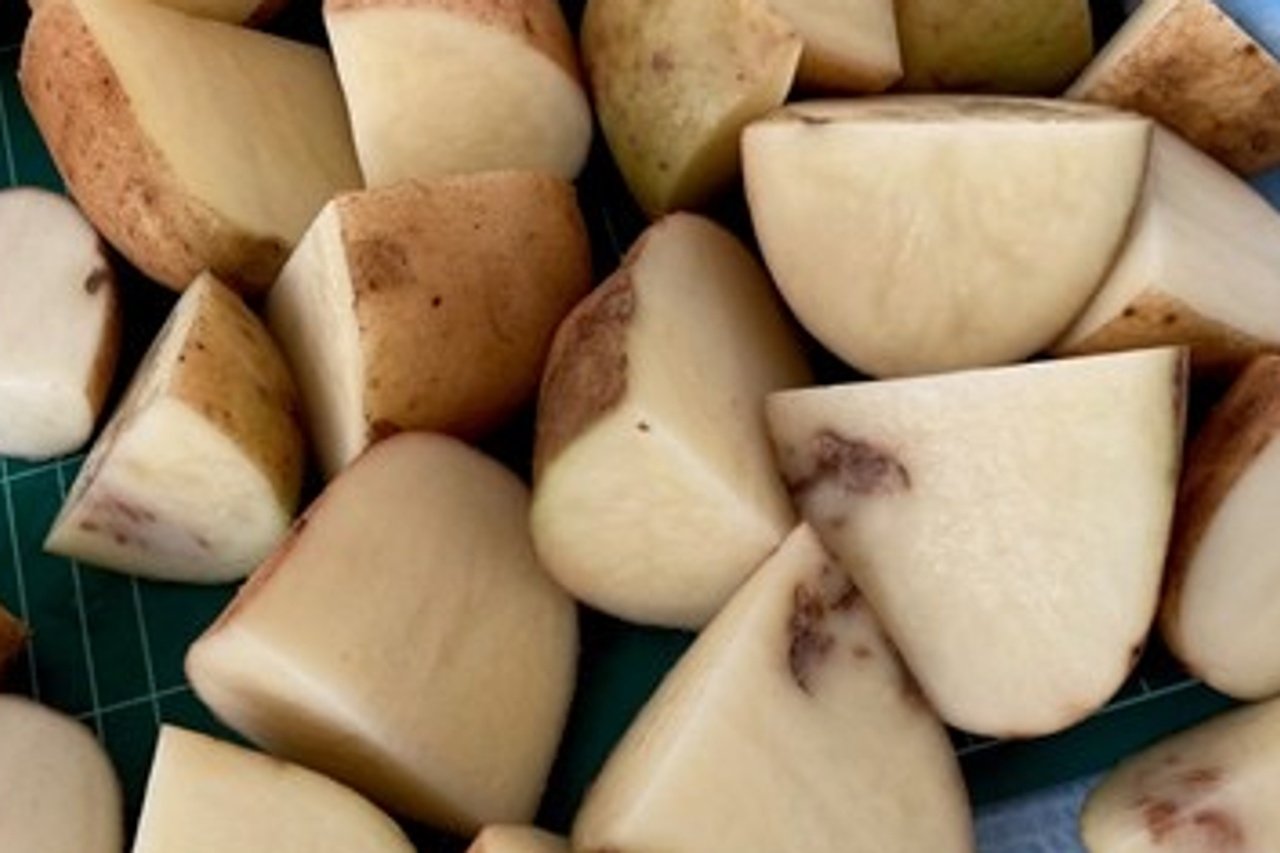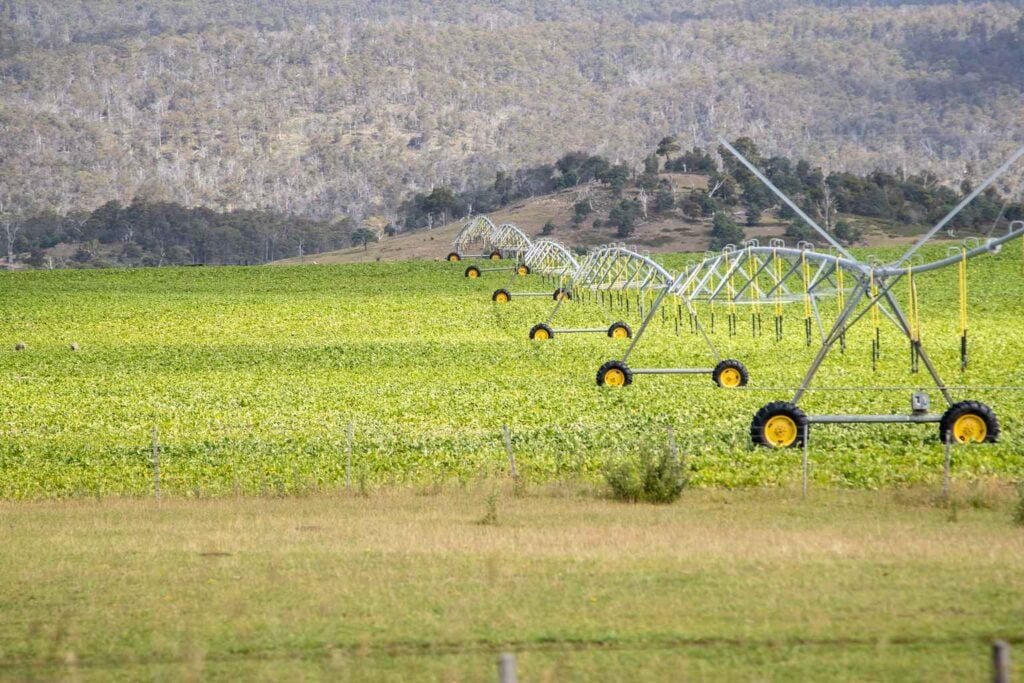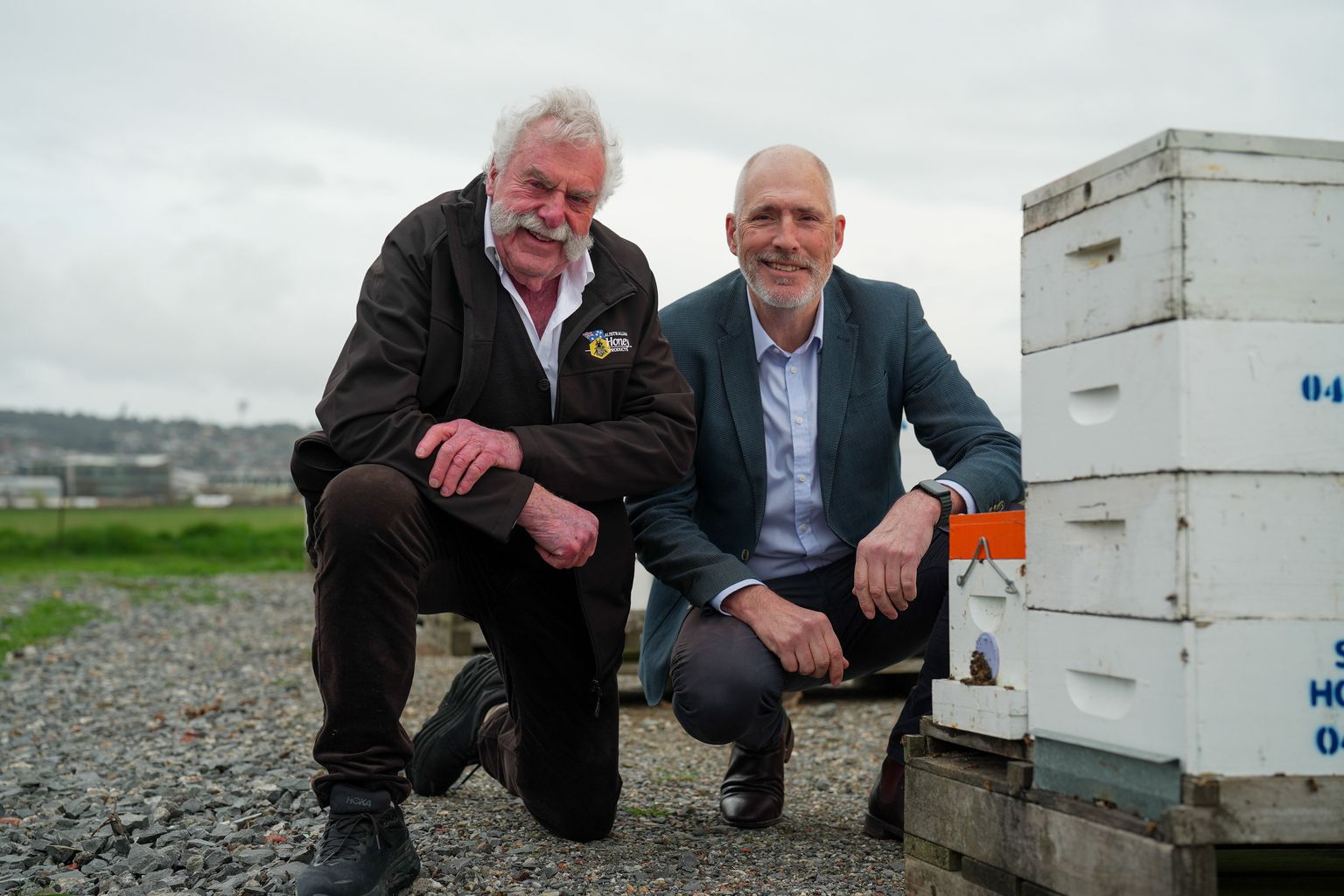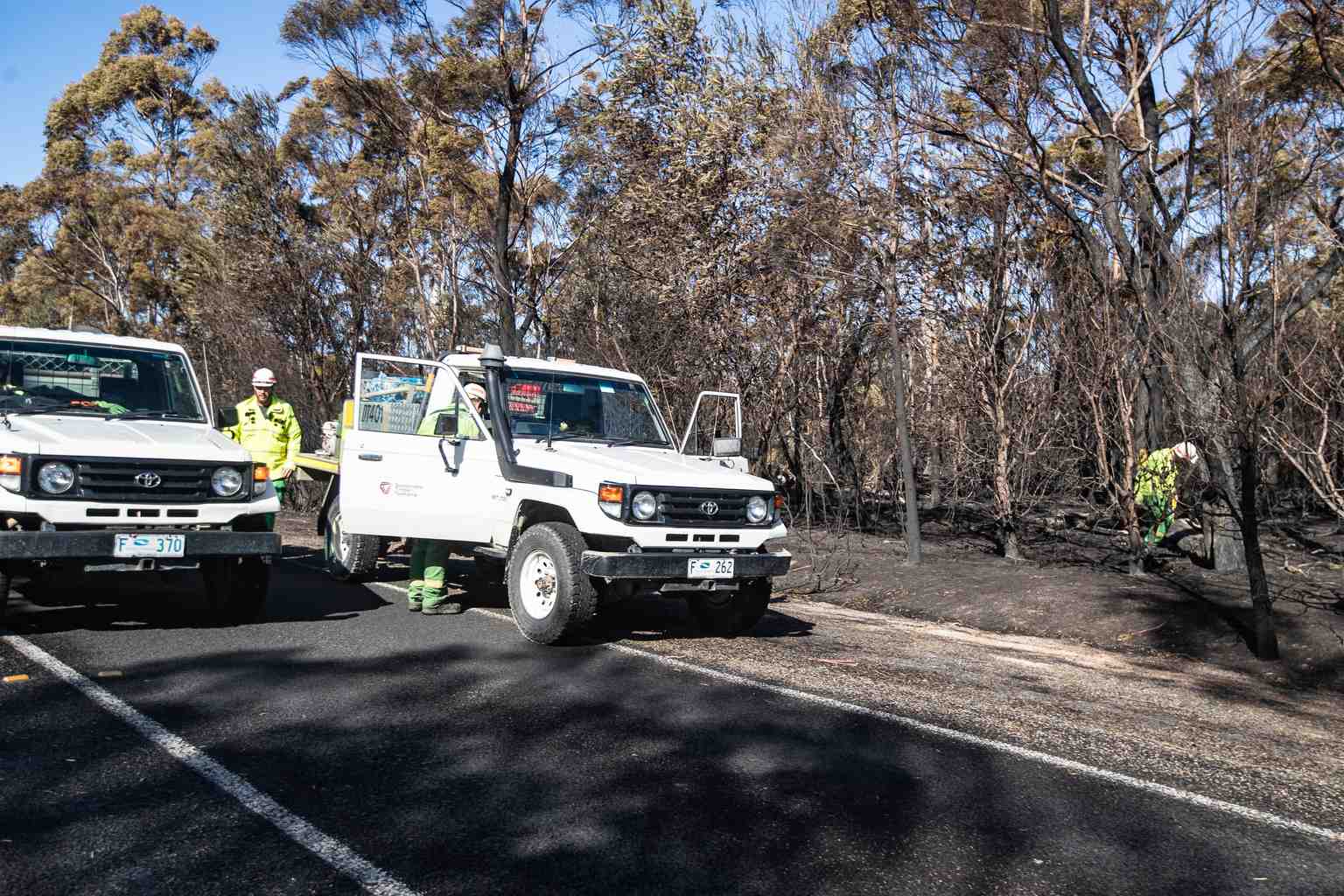An exotic potato virus never before detected in Australia has now spread to eight sites across Tasmania.
Potato mop-top virus was first identified in infected tubers from a north-west property in July, after an industry member reported suspicious symptoms to Biosecurity Tasmania.
The virus has since been confirmed at six grower sites containing harvested potatoes in storage, as well as a research facility in the state’s south and a northern storage site.
Four locations have direct links to each other, including the research plot where the virus was found in volunteer potatoes that had survived in soil from previous seasons.
The latest detections, confirmed on Thursday, have prompted additional emergency biosecurity measures and raised concerns about potential crop losses.

Biosecurity Tasmania has issued movement restrictions under the Biosecurity Act for all infected premises, prohibiting the transfer of potato material, machinery, equipment and soil from affected sites.
Early investigations suggest the virus may have been present in Tasmania for at least two years before detection.
The pathogen spreads through powdery scab spores, which can survive in soil for up to 12 years, even without host plants.
While the virus reduces tuber quality and crop yields in some varieties, authorities stress there are no food safety risks and potatoes remain safe to eat.
The outbreak has triggered Australia’s national emergency plant pest response arrangements, with the feasibility of eradication now being assessed.

Biosecurity Tasmania is continuing surveillance and testing efforts alongside industry partners, conducting trace-forward and trace-back operations to map the virus’s spread and determine how it entered the state.
The detection affects several potato varieties grown commercially in Tasmania, one of Australia’s major potato-producing regions.
Growers are urged to report unusual disease symptoms immediately and maintain strict biosecurity measures, including dedicated washing stations for equipment and limiting contractor vehicle movements in production areas.







